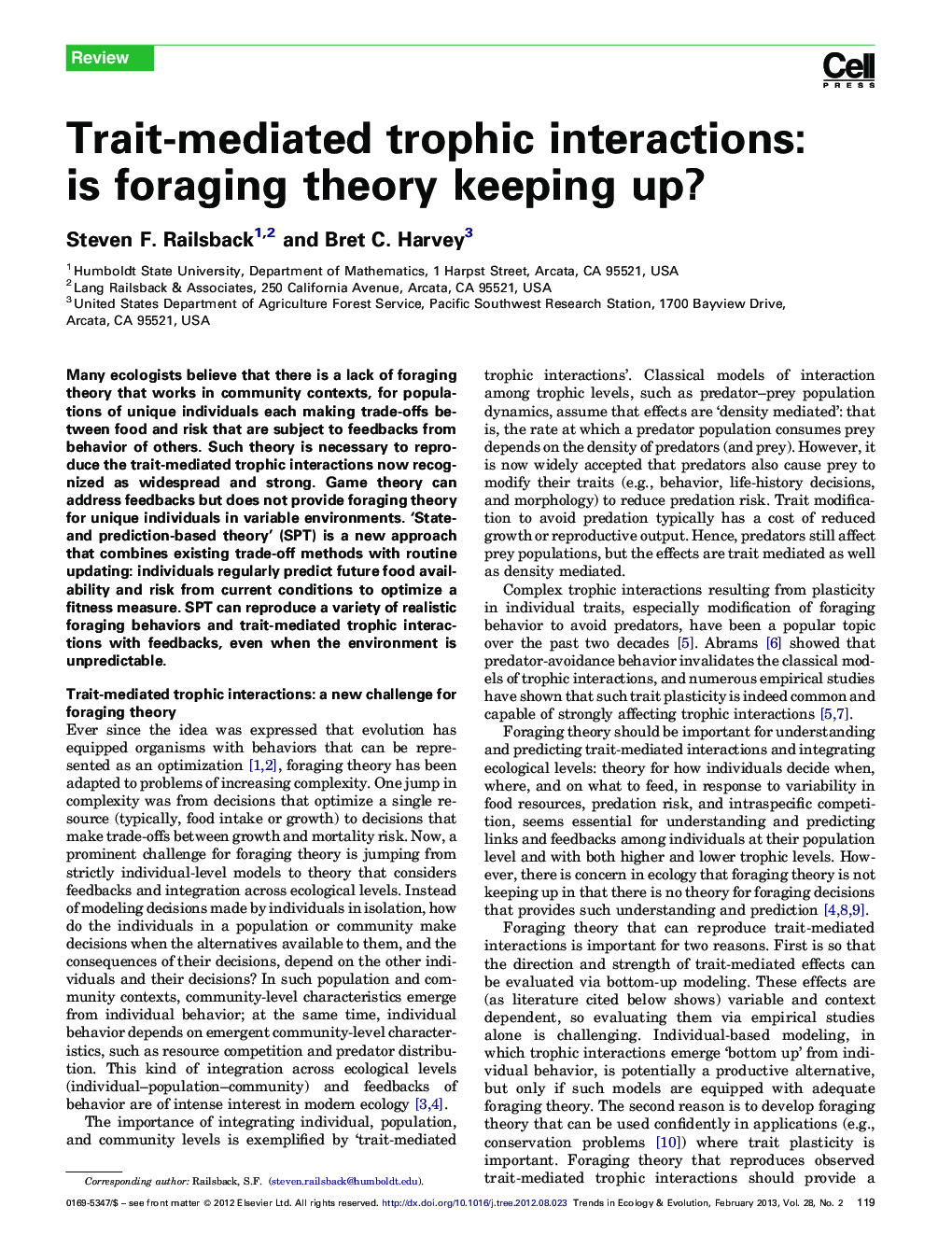| Article ID | Journal | Published Year | Pages | File Type |
|---|---|---|---|---|
| 142536 | Trends in Ecology & Evolution | 2013 | 7 Pages |
Many ecologists believe that there is a lack of foraging theory that works in community contexts, for populations of unique individuals each making trade-offs between food and risk that are subject to feedbacks from behavior of others. Such theory is necessary to reproduce the trait-mediated trophic interactions now recognized as widespread and strong. Game theory can address feedbacks but does not provide foraging theory for unique individuals in variable environments. ‘State- and prediction-based theory’ (SPT) is a new approach that combines existing trade-off methods with routine updating: individuals regularly predict future food availability and risk from current conditions to optimize a fitness measure. SPT can reproduce a variety of realistic foraging behaviors and trait-mediated trophic interactions with feedbacks, even when the environment is unpredictable.
